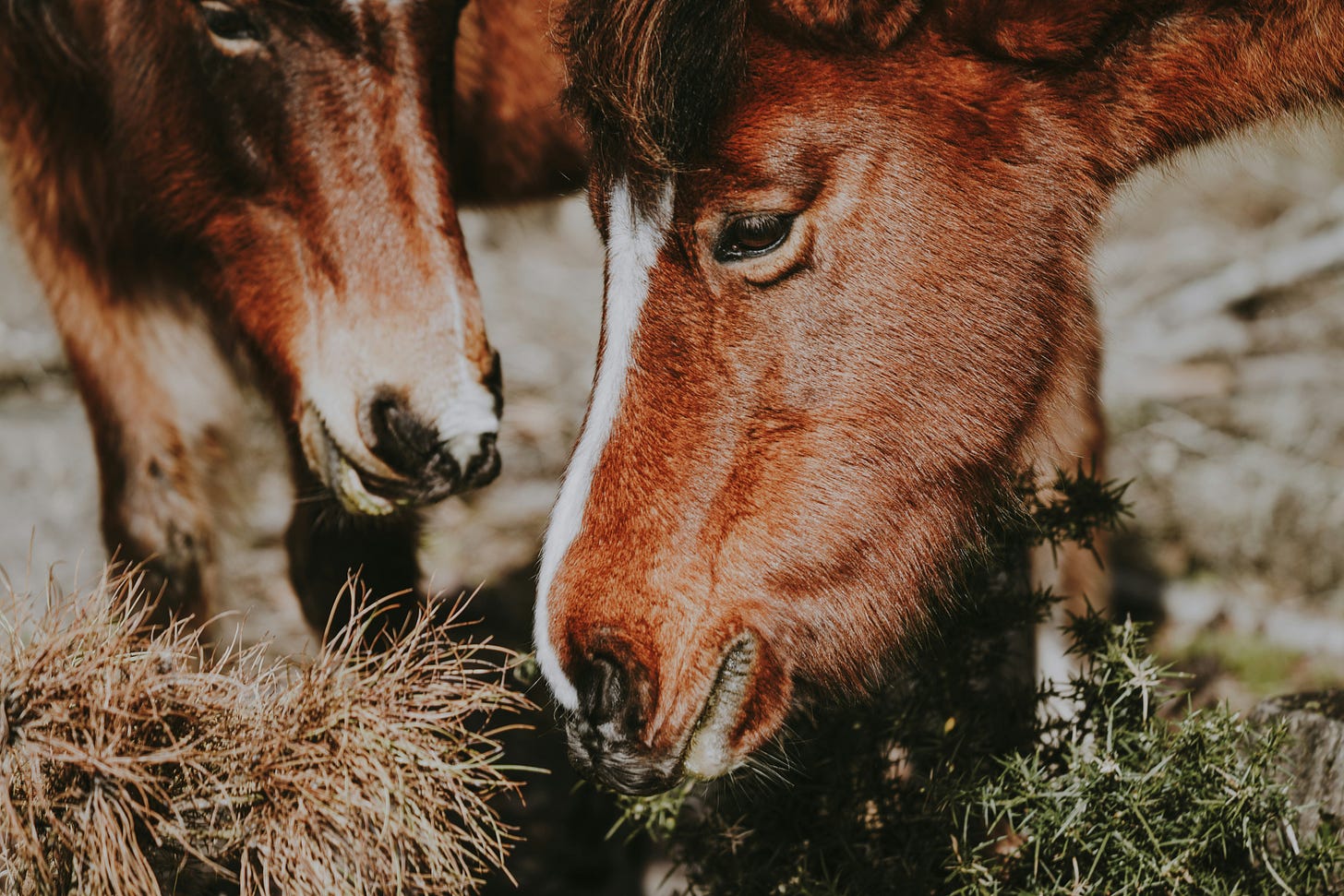Thursday Things is here! This week we plan with the horses, meet a goddess of hardware, and visit the quasi-moon.
If you enjoy this edition, please click the heart icon in the header or at the end of the post to let me know.
I’m a horse with a plan. Photo by José Alejandro Cuffia on Unsplash
Quasi-moon madness
The University of Georgia did not fare well in this year’s college football playoff, alas. But UGA totally dominated the international celestial object naming rankings! Go Dawgs!
UGA student wins global quasi-moon naming contest
That’s right. Eat it, Notre Dame.
If you’re like me, you’re probably wondering what the heck is a quasi-moon. I’m glad you asked!
Quasi-moons are asteroids that seem to act like moons, which orbit Earth, but upon further inspection actually orbit the sun. This illusion is only temporary, lasting for hundreds or thousands of years.
A quasi-moon is a temporary moon, sort of like a houseguest in the sky, that may hang around the Earth (or, presumably other planets) for a few centuries or millennia before wandering on their way. But quasi-moon is an awkward name, so Radiolab and the International Astronomical Union decided to hold a quasi-moon naming contest to find a name for one of Earth’s resident quasi-moons.
As one does.
The winning name was proposed by UGA sophomore Clayton Chilcutt.
Drumroll please:
Meet Cardea.
Cardea? Where did he come up with a name like that?
A name imbued with elegance and depth, Cardea is the Roman goddess of doorways and transitions, symbolizing the guardianship of thresholds. This quasi-moon, forever straddling the space between Earth and the cosmos, reflects Cardea's dominion over liminal states, embodying a celestial gatekeeper of the in-between.1
Roman mythology for the win!
Here is more about Cardea via the Brooklyn Museum:
Cardea, whose name means “door pivot,” was the Roman goddess of door hinges and handles who prevented evil spirits from crossing thresholds. She was worshipped as the protector of children, particularly from vampires and witches. As a goddess of health, her emblem was the hawthorn tree, thought to have magical powers of protection. Cardea’s association with doors also links her to craftworkers as their benefactor. Celebrated in the month of June, she was a goddess of the changing seasons.
I have to admit, I thought I knew my Roman mythology, but I was not familiar with the goddess of hinges. Maybe she works at Home Depot these days?
Chilcutt’s suggestion beat out thousands of entries worldwide to become one of seven finalist names before ultimately being chosen by a panel of judges that included Bill Nye the Science Guy, because why not?
“I came across Cardea, and when you read the description, it just sounds celestial,” Chilcutt told the New York Times.
You can’t argue with logic like that.
No word yet on whether sophomore Chilcutt will return to his astronomy studies next year or turn pro.
Horses plan ahead
Anyone who has spent time around horses knows they are intelligent creatures with distinct personalities, and often with a mischievous sense of humor.
But just how smart are our equine friends? And should we worry about a four-hooved Napoleon leading a horse uprising?
Horses can plan ahead and think strategically, scientists find
The old English proverb “you can lead a horse to water, but you can’t make it drink” has been used since the 16th century to describe the difficulty of getting someone to act in their own best interests.
Now, research by equine scientists suggests the use of this phrase has been inadvertently maligning horses for centuries.
Horses have the ability to think and plan ahead and are far more intelligent than scientists previously thought, according to a Nottingham Trent University study that analysed the animal’s responses to a reward-based game.
The horses cannily adapted their approach to the game to get the most treats – while making the least effort.
Sounds like these horses would fit in perfectly in many workplaces.
“Previously, research has suggested that horses simply respond to stimuli in the moment, they don’t proactively look ahead, think ahead and plan their actions – whereas our study shows that they do have an awareness of the consequences and outcomes of their actions,” said the lead researcher, Louise Evans.
I guess they had us fooled.
The experiment involved horses performing certain actions to get a treat, initially with no penalty for doing it wrong. At first horses got a treat for touching a card with their noses. Then a red light was added, with treats only given when the light was off. Horses for the most part ignored the light.
But when researchers changed the rules again to penalize horses who touched the card when the light was red, by giving them a 10-second timeout from the game, with no chance to get more treats while the other horses continued — suddenly the horses got better at the game.
Instantly switching strategies in this way indicates horses have a higher level of cognitive reasoning than previously thought possible. It suggests that, rather than failing to grasp the tenets of the game, the horses had understood the rules the whole time but, astutely, had not seen any need to pay much attention to them in the second stage.
This according to researchers, suggests that horses can identify objectives, look into the future, and figure out what steps are necessary to achieve their goals.
Which raises the question — just what are the horses’ goals? And what are they planning?
“Psst! We ride at dawn. And then — no more riding.” Photo by Annie Spratt on Unsplash
Thank you for reading!
Please click the hearts, leave a comment, and use the share feature to send this issue to a friend who might enjoy it. See you next Thursday!




